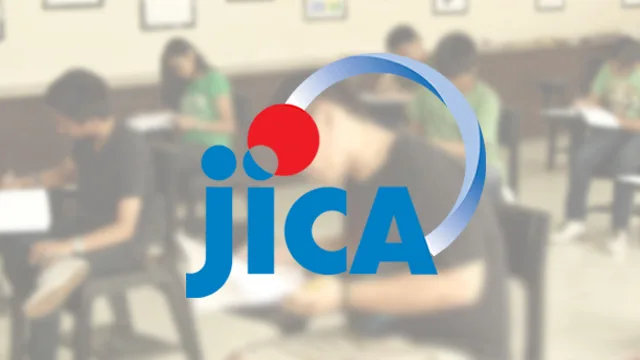Great news! Applications for the Japan International Cooperation Agency (JICA) Scholarships 2026-2027 are now open. In this article, we will explain in detail about this scholarship program, its benefits, and the complete step-by-step application process.
The JICA Scholarships are prestigious fully funded programs offered to students and professionals from developing countries. These scholarships aim to strengthen human resource development and international cooperation by supporting future leaders, researchers, and policymakers in pursuing master’s and doctoral degrees at leading Japanese universities.
Funded by the Japan International Cooperation Agency (JICA), the scholarships cover full tuition fees, monthly living allowance, round-trip airfare, accommodation, health insurance, and research expenses. JICA works in collaboration with various Japanese universities and international partners to provide specialized programs in areas such as public policy, economics, engineering, sustainability, governance, environmental studies, and development studies.
Scholarship Summary
Level of Study: Master’s & PhD
Institution: Partner Japanese Universities (in collaboration with JICA)
Study in: Japan
Scholarship Value: Fully Funded (tuition, stipend, accommodation, travel, insurance)
Deadline: Varies by program and partner country (generally November – March)
Scholarship Coverage
The JICA Scholarships 2026-2027 provide:
Full tuition fee coverage at participating Japanese universities.
Monthly living allowance (amount depends on the program).
Round-trip airfare from the home country to Japan.
Accommodation support (university dormitory or housing allowance).
Health insurance during the study period.
Support for research-related expenses.
Eligibility Criteria
To qualify for the JICA Scholarships Japan, applicants must:
Be a citizen of a developing country that partners with JICA.
Hold a bachelor’s degree (for master’s programs) or a master’s degree (for PhD programs).
Be under 35–40 years of age (depending on program requirements).
Demonstrate strong academic performance and leadership potential.
Be willing to contribute to the development of their home country after completion of studies.
Meet the English or Japanese language proficiency requirements (varies by university/program).
How to Apply
Follow these steps to apply for the JICA Scholarships 2026-2027:
Visit the JICA official website and identify the scholarship program available for your country.
Select your desired master’s or PhD program at a partner Japanese university.
Complete the application form provided by JICA or the partner institution.
Prepare and submit required documents:
Academic transcripts and certificates
Curriculum Vitae (CV)
Research or study plan
Recommendation letters
Proof of English/Japanese proficiency
Submit your application before the official deadline announced by your embassy or JICA office.
Website & Official Links
For more details, visit the official pages:
Frequently Asked Questions (FAQs)
What are the requirements for the JICA scholarship?
international nationality, Bachelor’s/Master’s degree, 2–5 years work experience, English proficiency (IELTS/TOEFL), and good health.
Who is eligible for a scholarship in Pakistan?
international citizens meeting the academic, age, and program-specific requirements.
Where can I get updates?
Check the JICA Pakistan Office, HEC website, and Japanese Embassy in Pakistan regularly for updates.
How much CGPA is required for a scholarship in Japan?
Usually 2.5/3.0 or higher (or equivalent), though competitive programs prefer stronger academic records.
Do I need IELTS or TOEFL for these scholarships?
For JICA, IELTS/TOEFL is often required.
Do I need to know Japanese to apply?
No, most programs are in English, but learning basic Japanese is recommended for daily life.
Can private-sector employees apply for JICA?
Yes, but preference is usually given to public sector/government employees.
Can I work in Japan after graduation?
Yes, but it depends on visa rules and employment opportunities. Many alumni find jobs in Japan or with Japanese organizations abroad.
Is work experience required?
Yes, usually 2–5 years of relevant work experience is needed, especially for programs like JDS or KCCP.
Does JICA provide internships or practical training?
Yes, most programs include internships, fieldwork, and exposure to Japanese industries and government institutions.

![Honjo International Scholarship Foundation [YEAR]-[NEXTYEAR] Favicon](https://www.scholarshipsghana.com/storage/media/8407f871-939d-4e2e-afa3-c4749bed44e2.webp)
![University of Tokyo Fellowships [YEAR]-[NEXTYEAR] Fully Funded Favicon](https://www.scholarshipsghana.com/storage/media/c68e3723-d8ae-446e-aa7a-5cef799e44c7.webp)
![MEXT University Recommendation Scholarship [YEAR]-[NEXTYEAR] Favicon](https://www.scholarshipsghana.com/storage/media/bd24daf2-3648-4b68-a94b-c4ce772f0588.jpg)